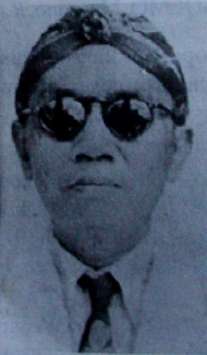 Central Library : Jl. Raya Tlogomas No 246 Malang
Central Library : Jl. Raya Tlogomas No 246 Malang infopus@umm.ac.id
infopus@umm.ac.id

Ki Bagus Hadikusumo, born in Yogyakarta on November 24, 1890, was an Islamic scholar and a prominent figure in the Indonesian national movement. He played a significant role in the struggle for independence and in formulating the nation's foundational principles. He served as the Chairman of the Muhammadiyah Central Board from 1942 to 1953, succeeding KH. Mas Mansur and preceding KH. AR Sutan Mansur. During the sessions of the Investigating Committee for Preparatory Work for Indonesian Independence (BPUPKI) in May-July 1945, Ki Bagus Hadikusumo presented two key ideas: first, that an independent Indonesia must be based on the sovereignty of the people; and second, he advocated for Islam to be the legal foundation of the independent Indonesian state.
In addition to his role in BPUPKI, Ki Bagus Hadikusumo was active in various organizations and educational institutions. He was a member of the Commission for the Reform of Religious Courts across Java and Madura in 1922, and a member of the Supervisory Committee for Islamic Boarding Schools in Yogyakarta in 1923. As a thinker and writer, Ki Bagus Hadikusumo produced several influential works, including:
Islam Sebagai Dasar Negara
Achlaq Pemimpin
Risalah Katresnan Djati
Source :
UIN Sunan Kalijaga Yogyakarta. (n.d.). Ki Bagus Hadikusumo: Suksesi dan Akhlak Pemimpin. Diambil dari digilib.uin-suka.ac.id
Humaidi, M. (2020). Gagasan Ki Bagus Hadikusumo dalam BPUPKI tentang Islam sebagai Dasar Negara [Jurnal]. Jurnal Ilmiah Hukum, 24(1), 34–45. Diambil dari journal.uhamka.ac.id
Soekarno, A. (2014). Peran Ki Bagus Hadikusumo dalam Pembaharuan Pendidikan Islam di Yogyakarta. Candi: Jurnal Ilmiah Pendidikan, 3(2), 120–134. Diambil dari jurnal.uns.ac.id